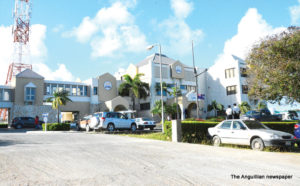
On Tuesday 28th February, 2017 the Eastern Caribbean Supreme Court in the Court of Appeal (Court of Appeal) handed down a decision in favour of National Commercial Bank of Anguilla Ltd (“NCBA”) in Civil Appeal No. 9 of 2016.
By way of background, on 6th May 2016, Mr William Tacon, the Administrator of the offshore subsidiaries of National Bank of Anguilla (“NBA”) and Caribbean Commercial Bank (Anguilla) Ltd (“CCB”) filed a claim in the High Court against NBA, CCB and NCBA. The claim alleged among other things that certain funds belonging to the offshore subsidiaries were transferred from NBA and CCB to NCBA. NCBA’s position has always been that this claim is groundless and without merit.
The Administrator made certain filings in the US Bankruptcy Court, seeking among other things to have the Anguilla proceedings recognized in the US Court. Subsequently, on 5th July 2016 Mr Tacon’s attorneys wrote to Bank of America, where NCBA operated certain accounts transferred to it by NBA and CCB (the “BOA accounts”). These accounts were used for the purpose of facilitating wire transfers, processing international bank drafts and other customer related transactions. Any funds held in these accounts were solely customer funds for the purpose of enabling customers to carry out their normal banking activities.
In the letter to Bank of America, the Administrator wrongfully claimed that the offshore subsidiaries had an interest in the funds in the BOA accounts and he demanded that Bank of America freeze the accounts. As a result Bank of America froze the funds in the accounts pending the outcome of the dispute between NCBA and the Administrator. The Administrator was therefore able to circumvent the usual court procedure which, as the Court of Appeal noted in its ruling, would normally have involved him applying to the Court for a freezing injunction. In NCBA’s view the chances of him getting such a freezing injunction from the Court were extremely low.
The actions taken by Mr Tacon and the resulting freezing of the BOA accounts resulted in significant disruption of NCBA’s banking activities, caused severe inconvenience and hardship to its customers and further caused a great deal of reputational damage to NCBA. While NCBA was eventually able to make alternative banking arrangements for its customers, the damage caused by Mr Tacon’s actions led, as recognized by the Court of Appeal, to damage that was irremediable and that most likely could not be compensated merely by an award of damages to NCBA.
NCBA applied to the High Court in Anguilla for two injunctions, which were both heard on 10 August, 2016. The first injunction was an “anti-suit injunction”. The Administrator had earlier applied to the US Court for an order which would have effectively prevented NCBA from defending itself in the claim filed by him in Anguilla. This was clearly unreasonable, and the High Court had no difficulty in granting the injunction against the Administrator to prevent him from seeking to obtain such an order.
The second “mandatory injunction” sought by NCBA was to compel the Administrator to write to Bank of America to withdraw his letter to them, thereby ending the freeze on the BOA accounts. The rationale for this application was the on-going financial and reputational harm to NCBA resulting from his letter. The Anguilla High Court judge declined to grant this injunction, citing the belief that the damage caused to NCBA, although “not necessarily trivial”, was not such as to cause it credible and real harm.
NCBA immediately appealed to the Court of Appeal to ask that the decision of the High Court judge be overturned, on the grounds that the judge had erred in several areas of her decision.
In its decision of 28 February 2017, the Court of Appeal agreed with NCBA and granted its appeal. The three-judge panel noted that “The judge said as much in sub-paragraph (6) when she said that the harm was ‘…not necessarily trivial.” I take this to mean that there was damage and harm to the appellant [NCBA] by the issuing of the demand letter and causing the freezing of the Account…” The Court said further “There is a real prospect that the appellant [NCBA] may not be able to recover any losses it suffers as a result of the demand letter and the resulting freeze of the BOA Account…”
As a result of the Court of Appeal ruling, the Administrator has been ordered to write to the Bank of America to withdraw both his letter to them and his demand for a freeze of the BOA accounts. The ruling restrains him from taking any further actions in connection with the BOA accounts, except with the permission of the Court. He has also been ordered to pay NCBA’s legal costs, both in the High Court and in the Court of Appeal. It is anticipated that the judgment of the Court will shortly be available on the Court’s website at www.eccourts.org
NCBA welcomes this ruling of the Court, as it continues its efforts to establish itself as the premiere banking institution for the people of Anguilla.







